Creating a Plan of Action to Manage Debt
Debt can feel overwhelming, but with the right strategy you can manage and reduce the financial burden and take control of your financial situation. Start by assessing your current situation. For a clear picture, make a list of your outstanding debts, including the interest rate or APR and payment schedule for each debt. Next, create a budget that outlines your income and expenses. Lastly, adjust your expenses to find extra money to devote to debt reduction. Seeking additional income sources can also expedite the repayment process. Remember, managing debt is a gradual process. With determination and a solid plan, you can work towards a more secure financial future.

What is Credit Counseling & Debt Relief?
If you’re struggling with significant credit card debt and can’t work out a repayment plan with your creditors on your own, consider contacting a debt relief service like credit counseling or debt settlement. Credit counseling services, often offered by nonprofit organizations, advise you on managing your money and debts. They may offer free educational materials and workshops. An initial counseling session typically lasts an hour, with an offer for follow-up sessions.
Be aware that “nonprofit” status doesn’t guarantee that services are free, affordable, or even legitimate. In fact, some credit counseling organizations charge high fees, which they may hide, or urge their clients to make "voluntary" contributions that can cause more debt. Debt relief programs, also known as debt settlement, are typically offered by for-profit companies, and involve negotiating with your creditors to pay a “settlement” to resolve your debt — a lump sum that is less than the full amount that you owe. However, debt relief isn’t guaranteed, and it comes with risks, such as a lower credit score, substantial fees and potentially lawsuits.
Credit Counseling & Debt Relief Services
If you’re thinking about getting help to stabilize your financial situation, do some homework first. Find out what services a business provides, how much it costs, and how long it may take to get the results they promised. Look for an organization that offers in-person counseling. Many universities, military bases, credit unions, housing authorities, and branches of the U.S. Cooperative Extension Service operate non-profit credit counseling programs. Your financial institution, local consumer protection agency, and friends and family also may be good sources of information and referrals.
Reputable credit counseling organizations can advise you on managing your money and debts and help you develop a budget. Their counselors are certified and trained in consumer credit, money and debt management, and budgeting. Counselors discuss your entire financial situation with you and help you develop a personalized plan to solve your money problems.
If your financial problems stem from too much debt or your inability to repay your debts, a credit counseling agency may recommend that you enroll in a Debt Management Plan (DMP). In a DMP, your creditors may agree to lower your interest rates or waive certain fees, but it’s essential to check with all your creditors to be sure they offer these concessions. A successful DMP requires you to make regular, timely payments; it could take 48 months or more to complete your DMP.
Bankruptcy
Personal bankruptcy also may be an option, although its consequences are long-lasting and far-reaching. The two main types of personal bankruptcy are: Chapter 13 and Chapter 7, both filed in federal bankruptcy court. Filing fees are several hundred dollars.
- Chapter 13 allows individuals with a steady income to keep property, like a mortgaged house or a car that they might otherwise lose through the bankruptcy process. In Chapter 13, the court approves a repayment plan that allows you to use your future income to pay off your debts during three to five years, rather than surrender any property.
- Chapter 7 is known as straight bankruptcy. This can often eliminate most debt.
You should speak with an experienced bankruptcy attorney to help you understand your options and next steps.
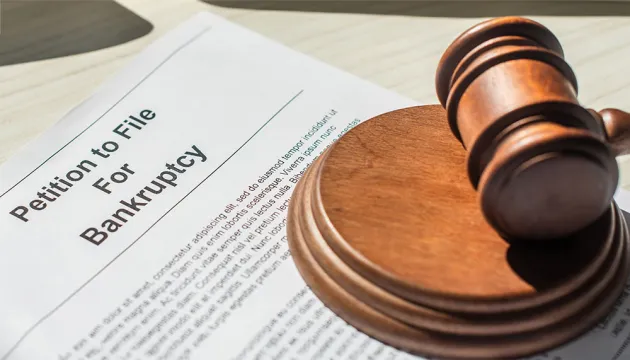
Using a Debt Management Plan
With a Debt Management Plan (DMP), you deposit money each month with the credit counseling organization. It uses your deposits to pay your unsecured debts, like your credit card bills, student loans, and medical bills, according to a payment schedule the counselor develops with you and your creditors. Secured loans, child support, alimony, fines, taxes, and some student loan obligations are not eligible to be included in a DMP.
Credit counseling costs vary depending on the state and company. It starts with a free consultation to review your credit and finances. They may also offer free resources or workshops on topics like housing, student loans, or tax debt counseling. If you enroll in a Debt Management Plan (DMP), the initial setup and monthly fees are usually low. You may qualify to eliminate fees based on your total income and federal limits.
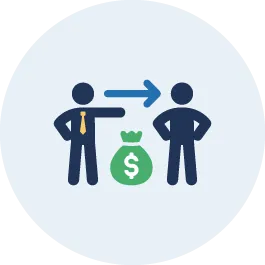
When enrolled in a DMP, your access to credit will likely be restricted. To understand when you can regain access to credit, it’s important to communicate with your credit counseling organization. Ask them for a detailed timeline of your DMP, including how long it will take to pay off debt and when you might be able to apply for a new credit.
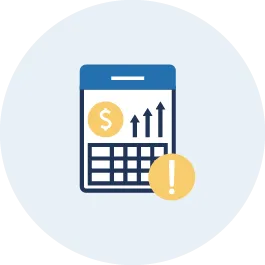
Avoid any debt relief organization — whether it’s credit counseling, debt settlement, or any other service — that: charges any fees before it settles your debts or enters you into a Debt Management Plan (DMP) plan; pressures you to make "voluntary contributions," which are essentially fees; touts a "new government program" to bail out personal credit card debt; guarantees it can make your unsecured debt go away; tells you to stop communicating with your creditors, but doesn’t explain the serious consequences; tells you it can stop all debt collection calls and lawsuits; and guarantees that your unsecured debts can be paid off for pennies on the dollar.
If you experience a scam with a credit repair or debt relief organization, you can file a complaint with the Federal Trade Commission (FTC). Although the FTC cannot resolve individual complaints, your complaint will be filed into a secure online database, which is used by many local, state, federal and international law agencies.
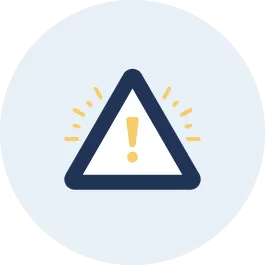
Fair Credit Reporting Act (FCRA)
- The Fair Credit Reporting Act (FCRA) requires credit unions and other financial institutions to ensure the accuracy and integrity of your consumer information when given to the credit reporting agencies.
- Be sure to check your credit report for inaccurate reporting of debt you are paying off or paid off.
- If you are experiencing issues with how the credit union is reporting your loans, you can contact NCUA’s Consumer Assistance Center at 800-755-1030 for assistance in filing a customer service complaint against your credit union.
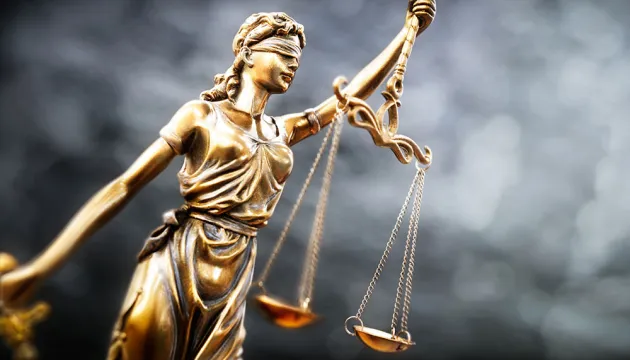
Frequently Asked Questions
- Add Up Monthly Debt Payments: Include all your monthly debt obligations such as your: mortgage or rent payments; student, auto, and personal loans; other loans; credit card payments, child support payments that you make; alimony payments that you make; and any other monthly debt payments. Living expenses such as utility bills, food, and entertainment are not typically included.
- Add Up Gross Monthly Income: Your gross monthly income includes the total amount of money you receive in a month from all sources before taxes and other deductions. Income includes earnings from your employment as well as other sources.
- Divide and Multiply: Divide your total monthly debt payment by your gross monthly income then multiply by 100 to get a percentage.
Example: If your total monthly debt payments are $1,500 and your gross monthly income is $5,000, your DTI is 30%. This means that 30% of your gross monthly income goes towards paying debt. Knowing your DTI is important for keeping track of your budget. Lenders may also look at DTIs to assess a borrower’s credit worthiness.
Paying only the minimum payment on a credit card often doesn’t significantly decrease the amount due because of the way interest and fees are applied. Here are the main reasons.
- Interest Accumulation – When you make only the minimum payment, a large portion of that payments goes toward interest rather than the principal balance. This means the actual debt amount decreases very slowly.
- Fees – If your account has any fees, such as late payment fees or annual fees, these can add to your balance. Paying only the minimum may not cover these fees causing your balance to remain high or even increase.
- High Interest Rates – Credit cards often have high interest rates. Even if you make the minimum payment, the interest charged on the remaining balance can be substantial, offsetting the reduction in the principal.
- Continued Spending – If you continue to use the credit card while making only minimum payments, new charges will add to your balance, making it difficult to see a decrease.
Example: If you have a balance of $1,000 with an interest rate of 13% and make a minimum payment of 2% ($20), a significant portion of that $20 will go toward interest, leaving a small amount to reduce the principal.
Debt consolidation is a way to combine all of your debts into a single loan with one monthly payment. A debt consolidation loan can offer several benefits, particularly if you struggle to manage multiple debts with varying interest rates and payment schedules. Here are some key advantages.
- Single Monthly Payment – Instead of juggling multiple payments to different creditors, you make just one monthly payment to the consolidation loan provider.
- Lower Interest Rates – If your consolidation loan has a lower interest rate than your current debts, you can save on interest over time.
- Fixed Repayment Schedule – Most debt consolidation loans come with fixed terms, so you know exactly how much you need to pay each month and when you have paid your debts in full. Also, you can pay off your debt faster than you would by continuing to make minimum payments on multiple accounts.
- Improved Credit Score – Using the loan to pay off credit card balances and reduce your credit utilization ratio can positively impact your credit score.
- Reduce Stress – Handling multiple debts can be overwhelming. Consolidating them into one loan reduces the number of accounts you need to keep track of, helping to ease financial anxiety.
- Better Financial Management – A debt consolidation loan can provide a clearer path to becoming debt-free, as you will have a defined repayment plan and a specific timeline for paying off your debt.